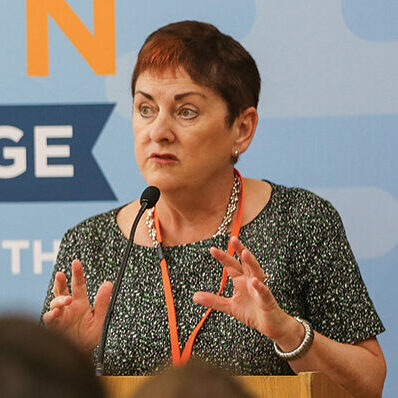Schools will pay lower national insurance contributions on behalf of their staff after the chancellor announced a cut to rates, but leaders have slammed his “mini budget” for including no extra cash injection for education.
Chancellor Kwasi Kwarteng also pledged new legislation to force unions to put pay offers to a vote of members, which he said would “ensure strikes can only be called once negotiations have genuinely broken down”. No further details have been announced.
Kwarteng confirmed today the government is reversing the 1.25 percentage point increase in national insurance that came into effect in April. The increase, dubbed the “health and social care levy”, was meant to raise more funding for the NHS.
The government estimated the levy would cost schools about £300 million a year. Schools and other public sector bodies were given money to fund the increase in last year’s spending review settlement. The Treasury has confirmed that money will not be clawed back this year, but it is unclear what will happen in future years.
Budget includes no school funding increase
But aside from a decrease in NI contributions and access to a £2.1 billion fund for public bodies to invest in energy efficiency and renewable heating, there was no sign of any further financial help for education.
This is despite the budget allocating billions reducing personal tax, abolishing the 45p rate of tax for the highest earners, cancelling planned rises in corporation tax and abolishing the cap on bankers’ bonuses.
Ministers announced earlier this week that they will limit energy bills paid by schools from October, which they said would save a school with a £10,000-a-month bill about £4,000.
But school leaders criticised the package for only covering six months, with the support due to be reviewed in three months’ time. It followed warnings that some schools faced up to a 500 per cent hike in energy bills.
Geoff Barton, general secretary of the ASCL leaders’ union said the government had “given away billions of pounds to promote growth, but not a penny for education”.
‘Some schools may no longer be viable’
He pointed out schools faced “huge extra costs” from national pay awards “for which there is no additional funding, and energy bills, which the government’s support scheme only partially addresses”.
“They simply do not have the money to afford these costs. Without urgent financial support from the government, it is likely that there will be deep cuts to provision and the risk of a decline in educational standards.
“Some schools, particularly small primaries, may no longer be financially viable. It is inevitable that we will see larger class sizes, cuts to subject options and pastoral support, school trips cancelled, extra-curricular programmes scrapped, and widespread job losses.”

Dr Mary Bousted, joint general secretary of the National Education Union, said the government was “electing to starve public services of investment and cut public sector pay whilst wasting billions on tax cuts for the wealthy and lifting the cap on bankers’ bonuses”.
“These measures will not provide the economic growth we need, and it is simply unjustified to claim that real-terms pay cuts for public sector workers are needed to keep inflation down.”
Unions also criticised the measures announced on strikes.
Paul Whiteman, general secretary of the NAHT leaders’ union, called the proposed legislation “needless and unnecessary”.
“Trade unions are already subject to stringent laws. Government should be focused on resolving the issues that cause dissatisfaction amongst workers rather than removing their ability to object.”
















Your thoughts